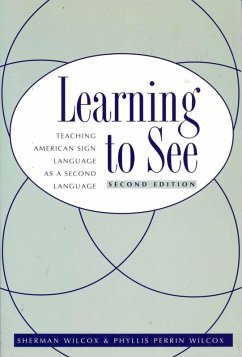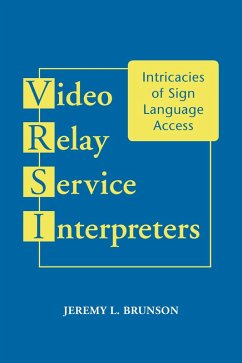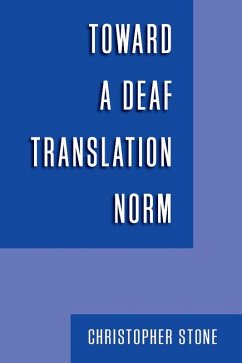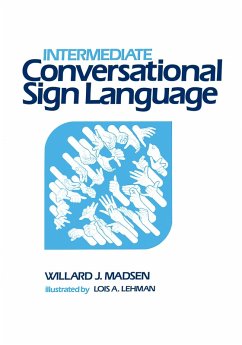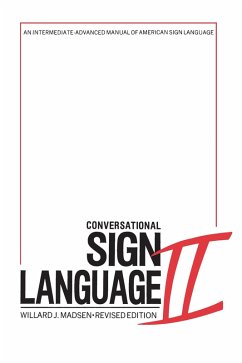
Study of Signed Languages (eBook, PDF)
Essays in Honor of William C. Stokoe
Redaktion: David F. Armstrong, Armstrong
Versandkostenfrei!
Sofort per Download lieferbar
133,95 €
inkl. MwSt.
Weitere Ausgaben:

PAYBACK Punkte
67 °P sammeln!
In 1999, many of today's notable researchers assembled at a special conference in honor of William C. Stokoe to explore the remarkable research that grew out of his original insights on American Sign Language. The Study of Signed Languages presents the fascinating findings from that conference. Part 1, Historical Perspectives, begins with a description of the decline of sign language studies in the 1800s. Past research on signed languages and its relationship to language origins theory follows, along with a consideration of modality and conflicting agendas for its study. In Part 2, Language Or...
In 1999, many of today's notable researchers assembled at a special conference in honor of William C. Stokoe to explore the remarkable research that grew out of his original insights on American Sign Language. The Study of Signed Languages presents the fascinating findings from that conference. Part 1, Historical Perspectives, begins with a description of the decline of sign language studies in the 1800s. Past research on signed languages and its relationship to language origins theory follows, along with a consideration of modality and conflicting agendas for its study. In Part 2, Language Origins, the first entry intrigues with the possibility that sign language could answer conundrums posed by Noam Chomsky's linguistic theories. The next essay considers how to build a better language model by citing continuity, ethology, and Stokoe's work as key elements. Stokoe's own research on the gestural theory of language origins is examined in the section's closing chapter. Part 3, Diverse Populations, delineates the impact of sign language research on black deaf communities in America, on deaf education, on research into variation in sign language, and even on sign communication and the motor functioning of autistic children and others. In its wide-ranging, brilliant scholarship, The Study of Signed Languages serves as a fitting tribute to William C. Stokoe and his work. Royalties from this title will be contributed to the William C. Stokoe Chair of Ethnographic Studies in Deaf Language and Culture fund at Gallaudet University, Washington, D.C. David F. Armstrong is an anthropologist and Professor of Administration at Gallaudet University. Michael A. Karchmer is Professor in the Department of Educational Foundations and Research and Director of the Gallaudet Research Institute at Gallaudet University. John Vickrey Van Cleve is Professor of History at Gallaudet University.
Dieser Download kann aus rechtlichen Gründen nur mit Rechnungsadresse in A, B, BG, CY, CZ, D, DK, EW, E, FIN, F, GR, HR, H, IRL, I, LT, L, LR, M, NL, PL, P, R, S, SLO, SK ausgeliefert werden.






